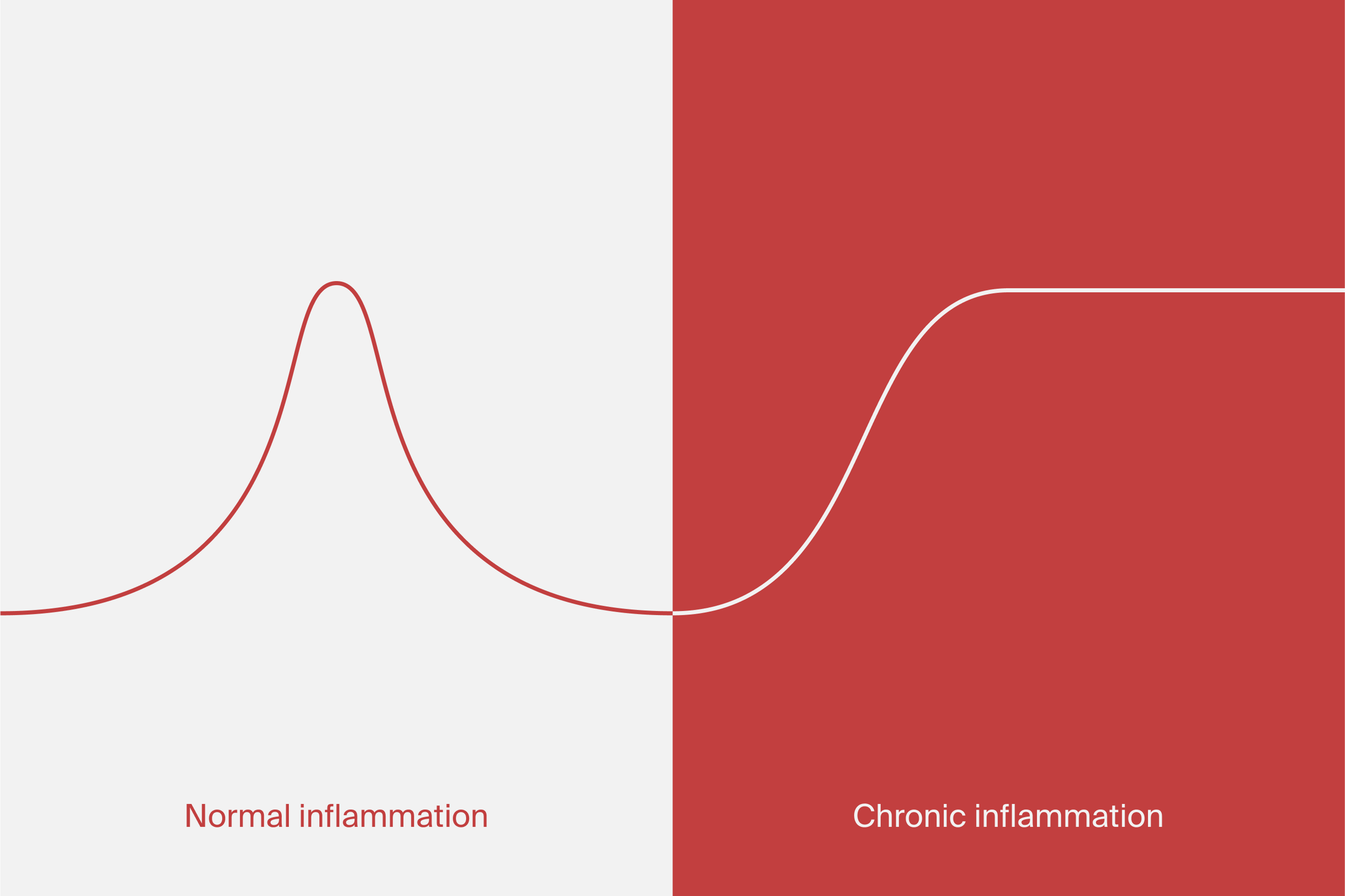Key takeaways
- “Inflammaging” is a low-grade chronic inflammation that occurs with age and is associated with the development of disease
- Several factors may contribute to inflammaging, such as genetics, obesity, and changes in gut function
- Impaired functioning of the mitochondria, the powerhouse of the cell, also may contribute to inflammaging
- Mitochondrial function may be improved through regular exercise and proper nutrition
Inflammaging and health
Chronic inflammation has received attention in light of the aging population and diseases that often develop with age. Understanding the body’s response to injuries and what happens when it is not working properly provides insight into strategies for disease prevention. Read on to learn more about how chronic inflammation relates to health and aging, as well as what can be done to combat it.
What causes inflammaging?
Inflammation is a normal response of the immune system that is critical for survival during physical injury and infection.[1] However, in some cases, this inflammatory state may persist beyond what is needed in response to a threat, termed “chronic inflammation.” This may have detrimental effects on the body and has received attention when it comes to understanding what happens in the body with age and the onset of disease.
The term “inflammaging” was developed to reflect a low-grade inflammation that results from unbalanced regulation of the immune system associated with aging. [2] With age, there are changes in the immune system, including in the functions related to the inflammatory response.[3] The body is not able to respond in the same manner to stressors, given the altered functioning of the immune cells.[4]
The root causes of inflammaging are not fully understood, but a number of factors that may play a role have been identified. First, genetic susceptibility may contribute to differences in the body’s inflammatory response and affect disease risk.[5]
Weight status may also play a role when it comes to inflammaging. Research has demonstrated that obesity, particularly around the midsection, increases chronic low-grade inflammation. This inflammatory response may affect the functioning of the immune cells and promote disease.[6]
Changes in gut function with age have also been examined as a contributor to inflammation. Aging has been shown to be associated with a reduction in beneficial bacteria in the gut and an increase in other bacteria that may promote inflammation.[7] Detrimental changes in gut function have also been shown to be more pronounced with the presence of conditions such as obesity.[8]

How are chronic inflammation and aging related?
There are numerous changes in the body that occur with age that may promote inflammation. In addition to changes in the immune system and in the gut, the decline in other functions in the body may also contribute. Autophagy, the recycling of old cells to create new ones, also may be impaired with age and promote an inflammatory response.[9]
Mitophagy, a specific type of autophagy that involves the recycling of the mitochondria, has also been identified as key when it comes to controlling inflammation and promoting healthy aging. The mitochondria are considered the “powerhouse” of the cell, and defective mitochondria that are not recycled due to impaired mitophagy may promote inflammation.[10] Defects in mitophagy are associated with various age-related conditions such as Alzheimer’s disease, cancer, and cardiovascular disease.[11]
How to prevent and reduce inflammaging
Various lifestyle factors have been examined when it comes to combating inflammaging.

Exercise
Exercise is one of the behaviors that may have a beneficial effect with regard to the avoidance of a chronic inflammatory state. A research study of lifelong aerobic exercising men showed that their activity had an anti-inflammatory effect on the muscle and circulation and that exercise also helped preserve the inflammatory response often seen with acute exercise.[12]

Diet
The inflammation that may occur with age may also be counteracted in part through diet. Intake of particular foods such as whole grains, vegetables, fruits, nuts, and fish has been shown to decrease inflammation.[13] Particular dietary patterns, such as the Mediterranean diet, have also demonstrated the potential to help control inflammation.[14]
In conclusion, inflammaging is a phenomenon that has significant implications for health and aging. Understanding the underlying causes and consequences of this persistent inflammation and embracing lifestyle factors to promote healthy aging is crucial for disease prevention and overall well-being.




